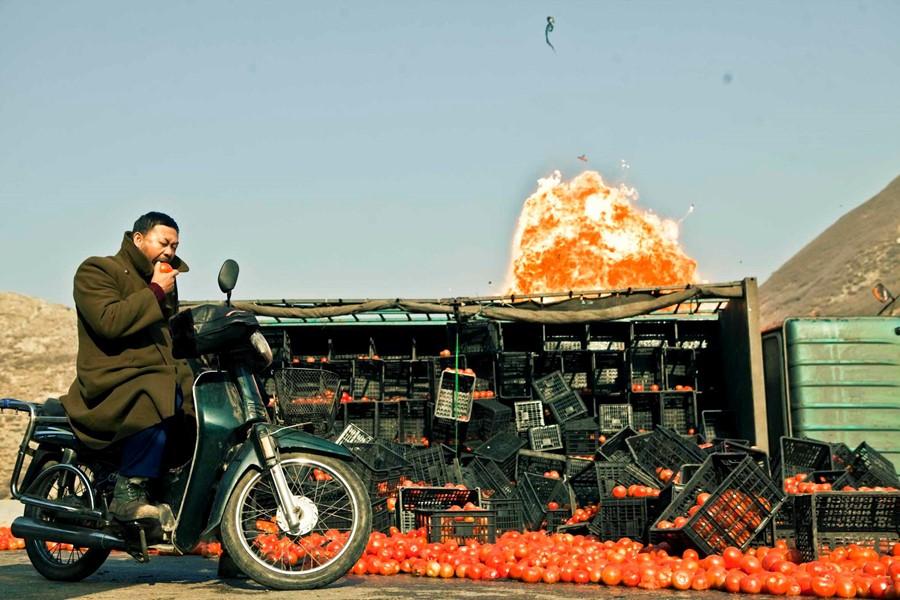As MUBI celebrates the arthouse auteur, here are five incisive films by Jia Zhangke that illuminate the dark political and economic forces reshaping Chinese society
Perhaps the most internationally-renowned director to have emerged since modern Mainland Chinese independent filmmaking took off in the early 1990s, Jia Zhangke is also a name synonymous with one of the country’s last great underground filmmaking movements: the so-called ‘Sixth Generation’.
While ‘Fifth Generation’ directors such as Zhang Yimou (Raise the Red Lantern) and Chen Kaige (Farewell, My Concubine) achieved international recognition in the late 80s and 90s by utilising visually rich historical melodrama as a platform for social commentary, filmmakers of the Sixth Generation departed from such splendour. Directors like Jia emerged in the 90s with a taste for documentary-like filmmaking that concerned the stories of ordinary people in the present day, and the ‘urban generation’ would subsequently become the subject of fascination to Western arthouse audiences for their apparently dissident filmmaking within a country notorious for its censorship.
Like his contemporaries – whose works would hit world-renowned film festivals just as wider Chinese-language cinema was being redefined by the likes of Wong Kar-wai, Edward Yang and Hou Hsiao-hsien – Jia was largely marginalised in his home country for a significant period of his career. His first three films, which helped to set out his unsentimental filmmaking style and observation of sweeping transformations in modern China – were effectively banned from distribution in the Mainland. And while his latter-day works have found greater cooperation from state studios and local theatres, Jia’s position as a leading underground filmmaker and social documentarian remains highly-respected.
As MUBI celebrates Jia’s recent career with a trilogy of films screening online (Time Will Transform Mountains: A Jia Zhangke Triple Bill) this month, AnOther explores five highlights from the arthouse auteur’s catalogue below.
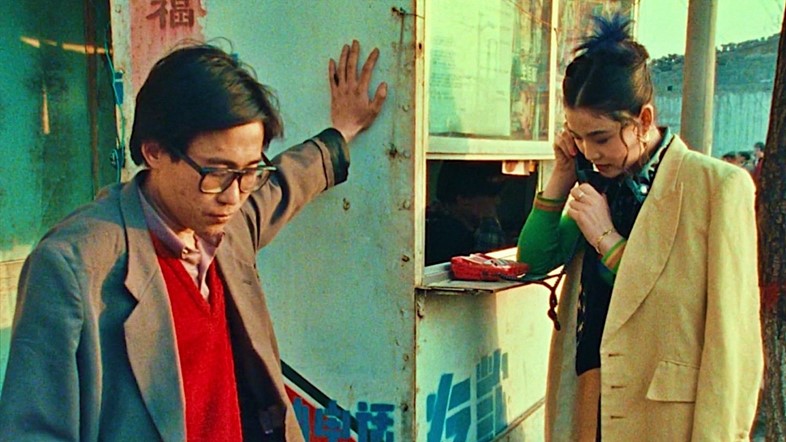
Pickpocket, 1997
Explored in greater detail in a prior article for AnOther – coinciding with MUBI’s original hosting of the film at the beginning of 2022 – was Jia’s debut feature, Pickpocket (Xiao Wu in its original Mandarin).
The tale of a “one-man crimewave” in rural Fengyang helped to establish many of the tropes that would come to define Jia’s arthouse oeuvre thereafter – including the use of non-professional actors, captivating shot compositions, and incisive commentary on the political and economic forces reshaping Chinese society. It’s still available to stream on the platform – and is the ideal starting point for any journey through the director’s works.
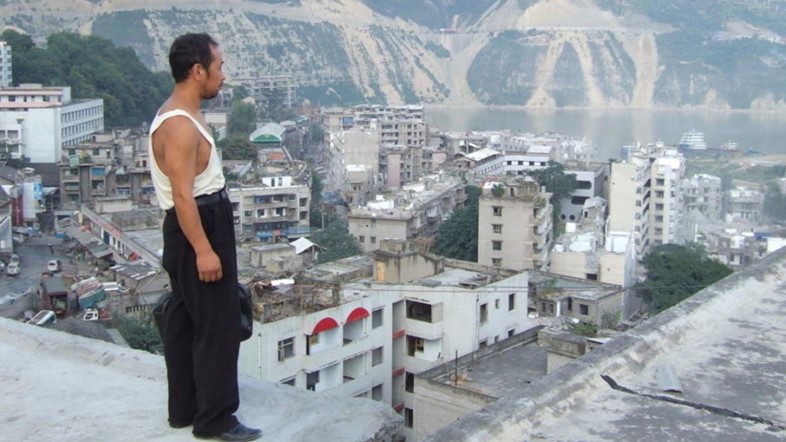
Still Life, 2006
While latter projects have afforded Jia’s filmmaking significant renown and reputation, the measuring stick against which all such works should be tested is surely Still Life. A poignant work full of breathtaking wide shots that centre on crumbling architecture, mountainous vistas and rusting industry – as well as contemplative long-takes reminiscent of Taiwan auteur Hou Hsiao-hsien – this tender and restrained tale of working-class persistence in an inhospitable environment won the coveted Golden Lion at Venice Film Festival in 2006.
The film follows quiet migrant worker Han Sanming (played by Jia’s cousin of the same name; a coal miner in real life) as he arrives by ferry into a city overlooking the Yangtze River hoping to reunite with his family. But after hitching a lift with a moped taxi, he discovers that his final destination is now submerged underwater. This is the consequence of the massive and controversial Three Gorges Dam construction project – which displaced over 1.3 million people at a cost of $28.6 billion in real life, as riverside communities were flooded so that power could be generated for coastal cities further down the river.
The remainder of Still Life finds Han and fellow blue-collar workers struggling to make ends meet as low-paid demolition squads, as passenger boats offer tourists a glimpse of the beautiful scenery and civilisation that will soon be lost. There’s a sense that this is a reality that those most affected are destined to endure ad infinitum in Jia’s cinematic universe – not least due to the fact that the main character in Still Life re-appears in A Touch of Sin (2013), still migrating back-and-forth to the Three Gorges Dam area.

A Touch of Sin, 2013
Filmed in response to the emergence of Chinese social media platforms like Weibo and WeChat – which gave rise to the exposure of shocking news stories ignored by the mainstream media – A Touch of Sin offers an anthology of interlinking narratives that focus on the violent encounters that bind the oppressed with the powerful.
Latter chapters concern an armed robber, a sauna receptionist involved in a marital affair, and the romance between a young former factory worker and a sex worker. But the opening tale of a shotgun-wielding, trenchcoat-wearing mine worker (Jiang Wu) in a snow-capped rural outpost – based on a real incident in which a supposedly corrupt village chief was killed in a dispute relating to inequalities of wealth – is perhaps the most vivid.
Riffing on the classic spaghetti westerns of Sergio Leone, this dust-covered opening chapter acts as a segue in the director’s canon – flaunting rich and vast images of desolate gorges, smoking chimneys and crumbling villages familiar to Jia’s previous works, while also embracing more widely appealing genre tropes for perhaps the first time. As such, A Touch of Sin was perceived as a radical departure from the realist works the director was known for prior – though crucially, it retains the acute social criticism Jia is so well-regarded for.
After winning the Best Original Screenplay award at Cannes Film Festival in 2013, The New York Times named it one of the 25 best films of the century in 2017 — alongside masterworks like Yi Yi, Moonlight, Spirited Away and There Will Be Blood.
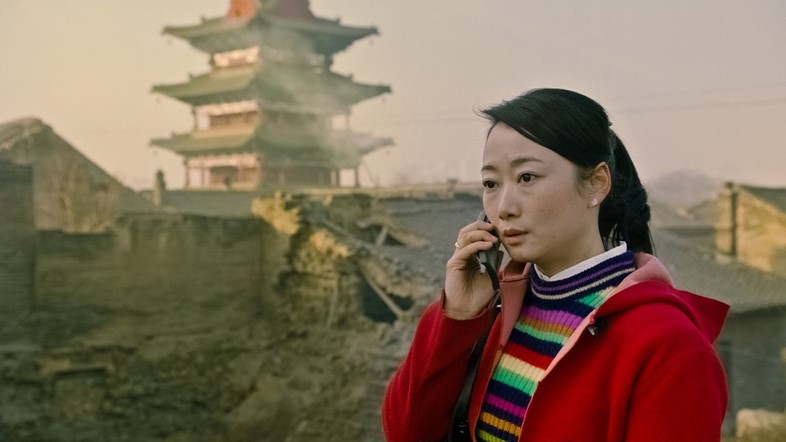
Mountains May Depart, 2015
Ostensibly an attempt to recoup unrealised profits after A Touch of Sin was banned from distribution in China (likely as a result of the correlations drawn between the systematic oppression of individuals and random acts of violence), Jia’s follow-up was intended to court mainstream attention without straying too far from his arthouse roots. The resulting love-triangle-turned-humanist-drama – crisply shot and richly coloured – was a success, with the film making a reasonable profit in Jia’s homeland while also competing for the top prize at Cannes.
The film opens in 1999 with the heady sounds of Pet Shop Boys anthem Go West – as a group of choreographed dancers perform inside a building as fireworks go off outside. Tao (Zhao Tao), the lead performer, is soon revealed to be caught in the affections of two different men: blue-collar worker Liangzi (Liang Jin Dong), and wealthy businessman Zhang (Zhang Yi). When Liangzi refuses to surrender his interests in Tao, Zhang terminates their friendship, buys the mine he works in, and fires him all in one move. Tao is then given an ultimatum that will have significant repercussions for her future.
Covering several decades, languages and continents in its 126 minutes, the ambitious Mountains May Depart succeeds through the relatability of its characters and events. Between great, documentary-style footage of wild young Chinese revellers in a hardcore techno club (complete with strobes, smoke machines and throbbing bass) and shots of bright Australian vistas, there is heart, tragedy and devastation in this globally-conscious social commentary.
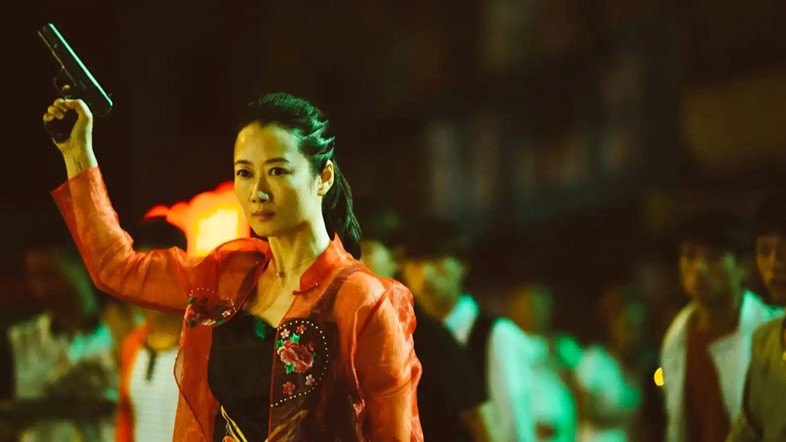
Ash Is Purest White, 2018
Jia’s most recent feature film was his fourth in a row to compete for the Palme d’Or at Cannes following Mountains May Depart, A Touch of Sin and 24 City. And while the festival’s top prize still eludes him (Hirokazu Kore-eda’s Shoplifters proved the victor on this occasion), Ash Is Purest White surely is the work of a filmmaker at the top of his game.
What starts out retreading classic gangster genre tropes soon metamorphoses into something quite different. Bin, played by Liao Fan (The Wild Goose Lake), is a mobster-on-the-rise with a penchant for brashness and dancing to the Village People, who dates a defiant young woman, Qiao (Jia regular Zhao Tao). All is peachy until Bin’s boss is whacked by a bunch of kids – and soon, Bin is in trouble himself.
A stunning one-shot street brawl involving shovels and bleeding noses ends when Qiao fires off a couple of warning shots with a pistol – but she’s arrested as a result. The metaphor of the film’s title – concerning the burning of something so severely that it becomes purified in the process – is deconstructed in the remaining acts, as Qiao emerges from a jail sentence having been stilted by her former lover.
Her 18-year journey towards closure traverses familiar settings and characters – including the magnificent basin of the Three Gorges Dam – while also turfing out striking and sometimes surreal images (a shooting star at night; live performances at working men’s clubs and funerals; the synchronised exercise of blue-uniformed prisoners in a snowy prison yard). The result is a crime-thriller-come-melancholy-drama that found acclaim wherever it went, with former US President Barack Obama even naming it on his end-of-year favourites list in 2019.
Time Will Transform Mountains: A Jia Zhangke Triple Bill is screening on MUBI now.
